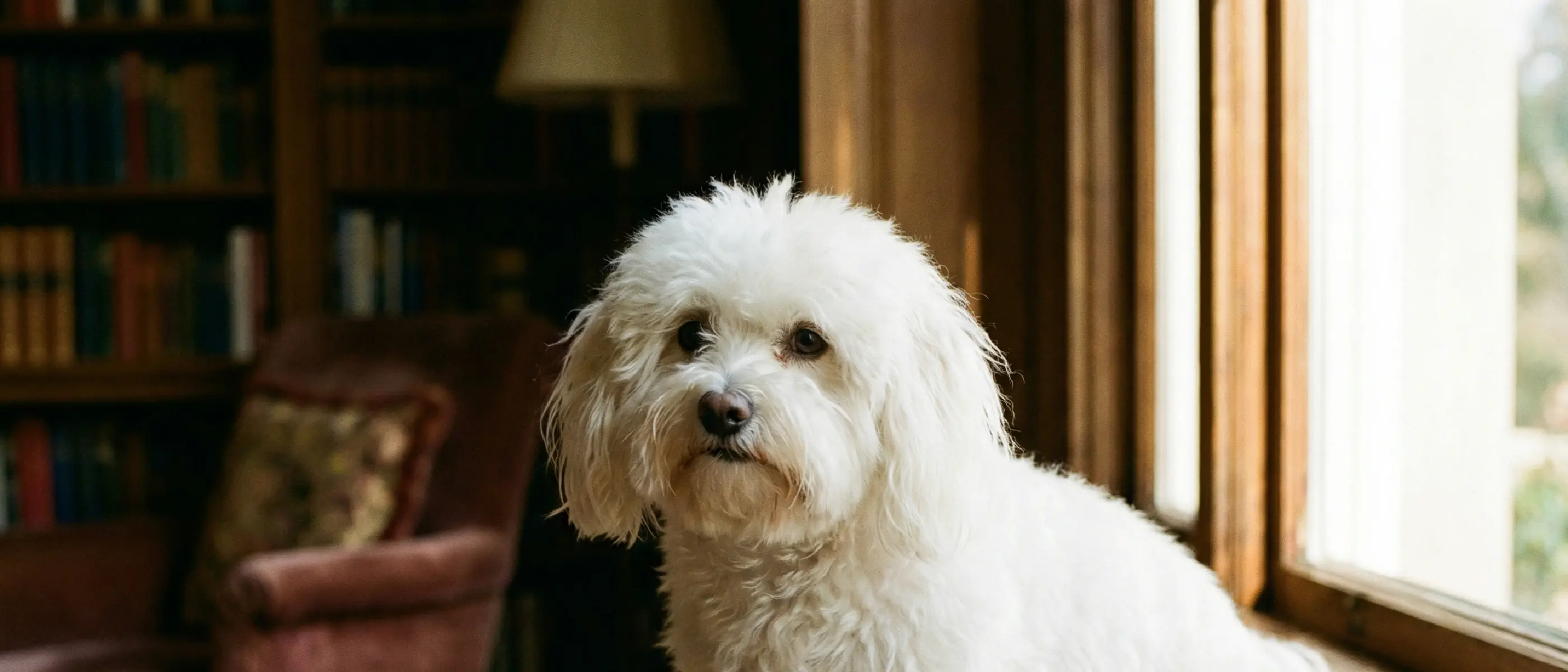The Bolognese
Posted on April 14, 2025 • 4 min read • 709 words
The Bolognese is a small breed of dog that has become a beloved companion to many families. This guide will cover everything you need to know about this delightful breed, from its history to its care requirements.
History
The Bolognese originated in Bologna, Italy, and was originally bred as a companion dog for aristocrats and nobility. They were known for their affectionate and loyal personality, and their small size made them the perfect lap dog. Today, the Bolognese is a popular family pet and a show dog.
Personality
The Bolognese is known for its gentle and affectionate personality. They are very social dogs and love to be around their owners. They are also very intelligent and easy to train. Because of their small size, they are great apartment dogs, but they also love to play and get plenty of exercise.
Care Requirements
The Bolognese requires regular grooming to maintain their fluffy coat. This includes daily brushing and regular baths to prevent matting and tangling. They also require regular exercise and playtime to keep them healthy and happy. Because of their small size, they are prone to dental issues and should have their teeth brushed regularly.
Health & Wellbeing
The Bolognese is generally a healthy breed, but like all dogs, they are prone to certain health issues that can affect their lifespan. It is important to keep up with regular vet check-ups and to maintain a healthy diet and exercise routine to prevent these issues. Here are some common health issues in the Bolognese breed:
Dental Issues
Because of their small size and tendency to eat soft food, Bolognese are prone to dental issues such as gum disease and tooth decay. Brushing their teeth regularly and providing them with appropriate dental chews or toys is important.
Allergies
Bolognese are also prone to allergies, manifesting as skin irritation or digestive issues. Identifying and addressing any allergies promptly is important to prevent more serious health issues.
Luxating Patella
Luxating patella is a condition where the kneecap slips out of place, causing pain and discomfort. This condition is common in small breeds like the Bolognese and may require surgery to correct.
Cataracts
Cataracts are a common eye condition in Bolognese, which can lead to impaired vision or even blindness. Regular vet check-ups can help detect and manage this condition.
Hip Dysplasia
Hip dysplasia is a condition where the hip joint doesn’t develop properly, leading to pain and mobility issues. While less common in the Bolognese than in larger breeds, it is still important to monitor for any signs of hip dysplasia and to take appropriate measures to manage it.
Cost
The cost of a Bolognese can vary depending on where you purchase them from. On average, they can cost anywhere from $2,000 to $5,000. It is important to purchase from a reputable breeder to ensure you get a healthy and well-socialized dog.
FAQ
Q: How long do Bolognese typically live?
Bolognese can live up to 14-16 years with proper care and attention to their health needs.
Are Bolognese good with other pets?
Bolognese are generally friendly with other pets, but early socialization and training is key to ensuring they get along well with other animals in the household.
Do Bolognese require a lot of exercise?
While the Bolognese does not require a lot of exercise, they do need daily walks and playtime to keep them mentally and physically stimulated.
Are Bolognese good for apartment living?
Bolognese are well-suited for apartment living due to their small size and low exercise requirements.
Do Bolognese shed a lot?
No, Bolognese are considered a low-shedding breed, making them a good choice for people with allergies or who prefer a cleaner home.
How much grooming do Bolognese require?
Bolognese have a fluffy coat that requires daily brushing to prevent matting and tangling. They also need regular baths and trips to the groomer to keep their coat looking its best.
Do Bolognese bark a lot?
The Bolognese is not known for excessive barking but may bark to alert their owners to strangers or unfamiliar situations.
Are Bolognese easy to train?
Yes, Bolognese are intelligent and eager to please, making them relatively easy to train with positive reinforcement techniques.